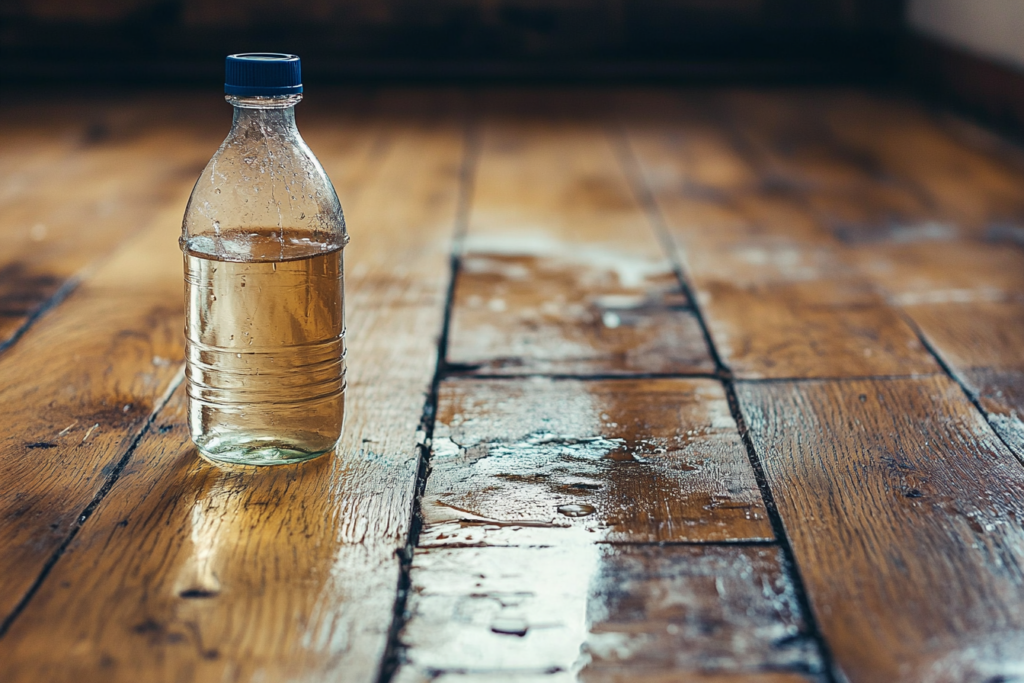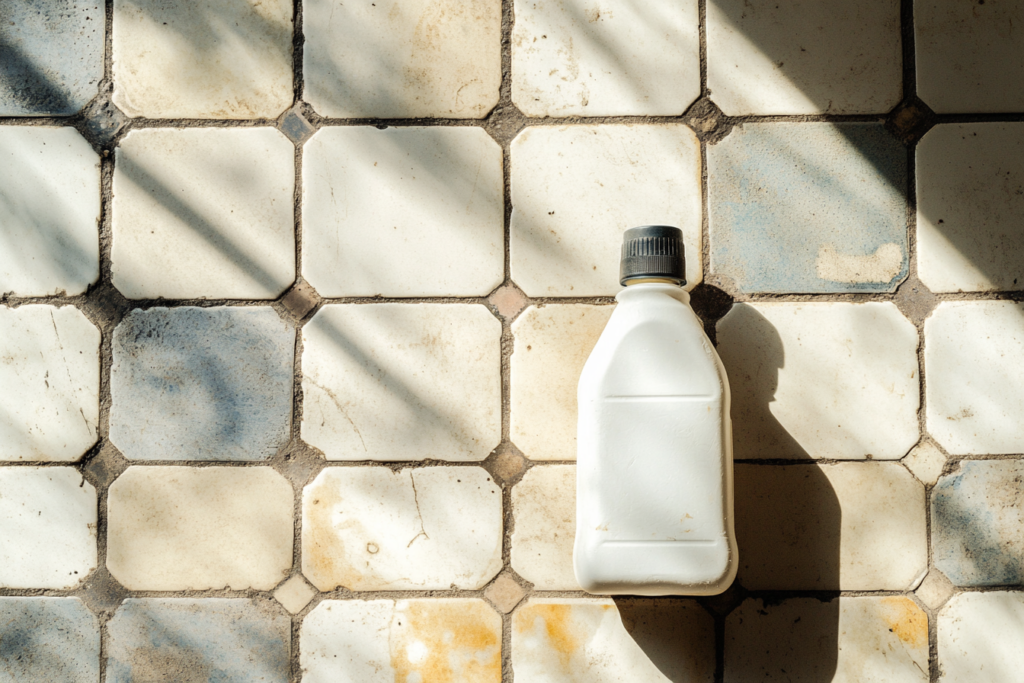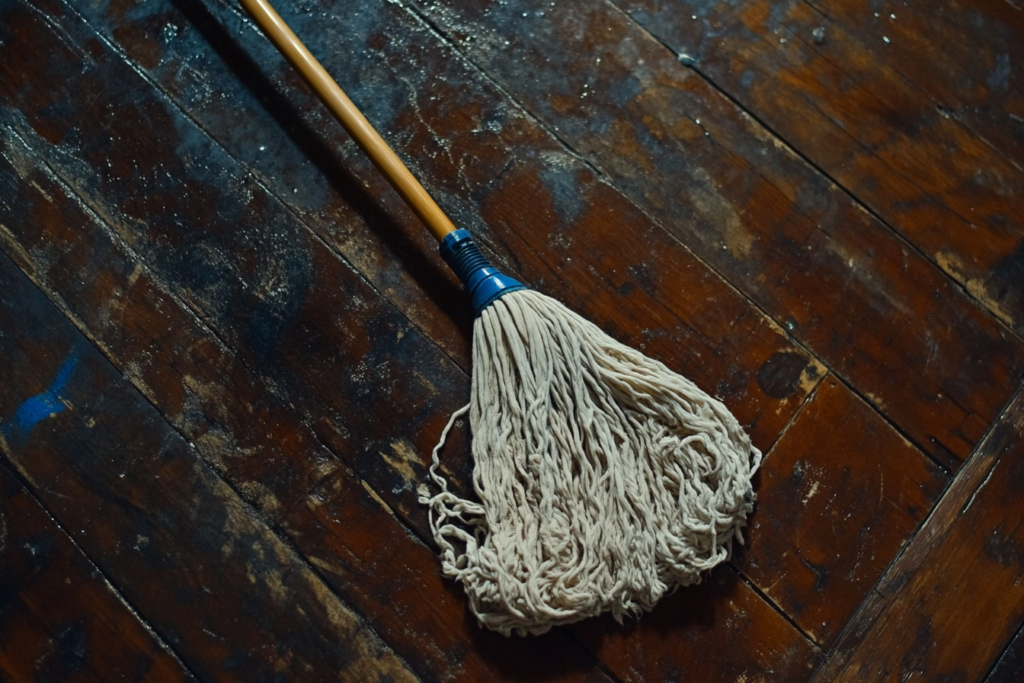Your beautiful floors are one of the biggest investments in your home. But did you know that some common household cleaners could be silently destroying them? Many well-intentioned homeowners unknowingly damage their floors by using the wrong cleaning products. Here’s what you need to know about protecting your valuable flooring.
Why vinegar is your floor’s worst enemy

That bottle of white vinegar in your pantry might be great for cooking, but it’s terrible for your floors. The high acid content in vinegar gradually eats away at your floor’s protective finish, leading to dullness and deterioration. Over time, it can even penetrate the wood itself, causing permanent damage that’s expensive to repair.
What makes vinegar particularly problematic is its delayed effect. You might not notice the damage immediately, but repeated use will eventually strip away the glossy finish that protects your floors. Instead of vinegar, opt for a pH-neutral floor cleaner specifically designed for your flooring type.
The hidden dangers of ammonia-based cleaners
Ammonia-based cleaners might seem like powerful allies in your cleaning arsenal, but they’re actually silent destroyers of floor finishes. These harsh chemicals can etch into your floor’s surface, removing its protective sheen and leaving it vulnerable to further damage.
Even diluted ammonia solutions can cause discoloration and dullness over time. The high pH level of ammonia makes it particularly aggressive on wood, laminate, and vinyl surfaces. Surprisingly, it can also leave behind a residue that attracts dirt and dust, making your floors look dirtier faster.
Stop using bleach on your floors immediately

Bleach might be your go-to for whitening laundry, but it should never touch your floors. This harsh chemical can cause irreversible discoloration and damage to all types of flooring, from hardwood to linoleum. The chlorine in bleach breaks down protective sealants and can weaken the actual material of your floors.
Many homeowners mistakenly believe bleach is necessary for sanitizing floors. However, modern floor sanitizing cleaners can achieve the same level of cleanliness without risking damage to your flooring investment.
The truth about oil soap products
Oil-based cleaners and soaps might promise to add shine and protection to your floors, but they often do more harm than good. These products can leave behind a sticky residue that traps dirt and dulls your floors’ appearance. On cork floors, oil-based cleaners can actually soak into the material and cause permanent discoloration.
What’s worse, this buildup can interfere with future refinishing projects, as new finishes won’t adhere properly to the oily residue. If you’ve been using oil soap products, you might need professional cleaning to remove the accumulated residue before applying any new treatments.
When water becomes the enemy

Sometimes the simplest solution isn’t the best one. Using too much water – even plain water – can severely damage your floors. Excess moisture can seep between boards, causing wood to swell and warp. For laminate flooring, water can penetrate the seams and lead to swelling that’s impossible to repair.
Instead of traditional wet mopping, use a microfiber spray mop that allows you to control the amount of moisture applied to your floors. This method provides effective cleaning while minimizing the risk of water damage.
Your floors are meant to last for decades with proper care. By avoiding these harmful cleaning products and opting for appropriate alternatives, you’ll maintain their beauty and protect your investment for years to come. Remember to always check your flooring manufacturer’s recommendations before trying any new cleaning product.
